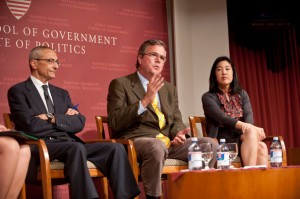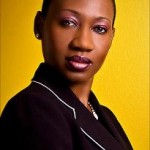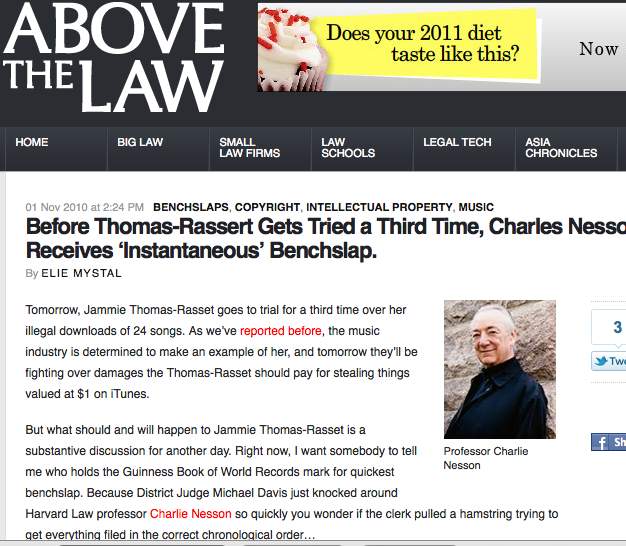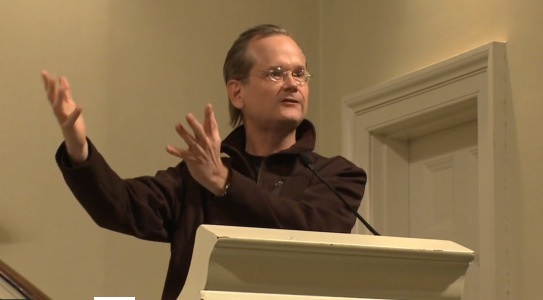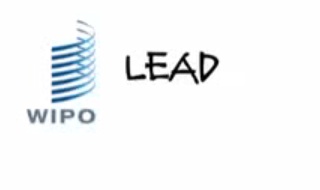In the UNITED STATES DISTRICT COURT for the DISTRICT OF MINNESOTA
CAPITOL RECORDS INC.;SONY BMG MUSIC ENTERTAINMENT; ARISTA RECORDS; INTERSCOPE RECORDS; WARNER BROS. RECORDS INC.; and UMG RECORDINGS INC.,
v.
JAMMIE THOMAS
____
AMICUS BRIEF IN SUPPORT OF JUDGMENT NOTWITHSTANDING THE VERDICT
Federal Rule 59(d) empowers the Court on its own motion to “order a new trial for any reason that would justify granting one on a party’s motion.”
Jammie Thomas has been tried three times, each time according to a script that has led to outlandish jury awards. Clearly something is wrong in the interpretation and application of the law that produces and replicates such result.
Amicus Curiae urges the Court, on its own motion, to recognize the errors of the previous proceedings against Jammie Thomas and to enter a judgment in her favor notwithstanding the verdict.
STATEMENT OF THE CASE
In the defendant’s third trial, the Court introduced the case by twice telling the jurors that the plaintiffs are entitled to a statutory damage award between $750 and $150000 for each of 24 infringements. Tim Reynolds, counsel for the recording industry, in his opening statement, was permitted to tell the jury that his clients could have sued Jammie Thomas for 1700 infringements but chose to sue for only 24 infringements, and to urge the jury to award damages sufficient to deter piracy on the net, not just Jammie Thomas but all music piracy on the net. At trial, executives of the recording companies were permitted to testify that piracy on the net caused half the employees of the plaintiff companies to lose their jobs and the companies to lose half their value, measured in billions. Despite the fact that this trial was to be on damages only, weighty testimony was admitted to prove that copyrighted music was downloaded to the defendant’s computer: A digital investigator, an executive from an internet service provider, and a forensic expert were permitted to testify at length. The defendant was then impeached with evidence that she had not owned up forthrightly to her infringements.
At the close of the evidence the Court instructed the jury that it should award between $750 and $150,000 for each infringement:
The instructions I am about to give you now are in writing and will be available to you in the jury room. All instructions, whenever given and whether in writing or not, must be followed. Do not allow sympathy or prejudice to influence you. The case must be decided by you solely and exclusively on the evidence received here in court. You should consider each expert opinion received in evidence in this case, and give it such weight as you think it deserves.
Your verdict depends on whether you find certain facts have been proved by the greater weight of the evidence. The burden of proving a fact is upon the party whose claim depends upon that fact. The party who has the burden of proving a fact must prove it by the greater weight of the evidence. In order to find that a fact has been proved by the greater weight of the evidence, you must find that it is more likely true than not true. It is determined by considering all of the evidence and deciding which evidence is more believable.
You should consider and decide this case as a dispute between persons of equal standing in the community, of equal worth, and holding the same or similar situations in life. A corporation is entitled to the same fair trial as a private individual. All persons, including corporations, and other organizations stand equal before the law, and are to be treated as equals.
This is an action for copyright infringement. A “copyright” is the exclusive right to copy. One who reproduces or distributes a copyrighted work during the term of the copyright, infringes the copyright, unless licensed by the copyright owner.
“Willful” means that a defendant had knowledge that her actions constituted copyright infringement or acted with reckless disregard of the copyright holder’s rights. You are hereby instructed that a jury in a previous trial has already determined that the defendant’s infringement of plaintiffs’ copyrights was willful. In this case, there is no issue as to the defendant’s liability for willful copyright infringement. As a result, your sole responsibility is to determine the amount of damages to be awarded to the plaintiffs for the defendant’s willful infringement of the plaintiffs’ copyrights.
Each plaintiff has elected to recover “statutory damages” instead of actual damages and profits. A copyright holder may recover statutory damages even if it did not submit evidence regarding actual damages. Under the Copyright Act, each plaintiff is entitled to a sum of not less than $750 or more than $30,000 per act of infringement (that is, per sound recording downloaded or distributed without license).
Because the defendant’s conduct was willful, then each plaintiff is entitled to a sum of up to $150,000 per act of infringement (that is, per sound recording downloaded or distributed without license), as you consider just.
In determining the just amount of statutory damages for an infringing defendant, you may consider the willfulness of the defendant’s conduct, the defendant’s innocence, the defendant’s continuation of infringement after notice or knowledge of the copyright or in reckless disregard of the copyright, the effect of the defendant’s prior or concurrent copyright infringement activity, whether profit or gain was established, harm to the plaintiff, the value of the copyright, the need to deter this defendant and other potential infringers, and any mitigating circumstances.
The verdict form is simply the written notice of the decision that you reach in this case. You will take this form to the jury room, and when each of you has agreed on the verdicts, your foreperson will fill in the form, sign and date it, and advise the court security officer that you are ready to return to the courtroom.
The jury retired to deliberate. After hours of deliberation the jury sent a note to the judge to ask a question:

to which the answer the jury was given was “yes.”
Shortly thereafter, the jury returned the verdict form with numbers filling in the blanks.

The jury filled in each of the twenty-four blanks on the form with “62,500.” Based on the jury’s verdict, the Court entered judgment against Jammie Thomas for $1,500,000.00.
ARGUMENT
This third overblown verdict in this case demonstrates that something is radically wrong. A jury has spoken for a third time and its verdict is constitutionally unsupportable. Our government is seen to support the imposition of exemplary punishment on individuals who have done no appreciable damage. The question is, what is wrong and how to fix it? A ruling on the constitutionality of the Copyright Act as applied to impose draconian punishment on file-sharing can no longer be deferred. It is now time for this Court to rule by interpreting the Copyright Act to apply in a constitutional manner.
I. CONSTITUTIONAL GROUNDS
(a) Congress has no constitutional power to enact a statute that places in private corporate hands authority to ask a jury to impose draconian exemplary damages on individual citizens who have caused no actual damage.
The Court instructed that “A copyright holder may recover statutory damages even if it did not submit evidence regarding actual damages.” As stated this is tantamount to telling the jury that actual damage does not matter. Not only does this instruction erroneously assume congressional power to punish citizens for conduct which has caused no damage, and power to punish this conduct with draconian consequence, it assumes that Congress could constitutionally and has in fact put this exemplary punishing power into private (corporate) hands.
Noted economists Mitchell Polinsky and Stephen Shavell write:
An important result in the economic theory of enforcement is that, under certain circumstances, it is optimal to impose the highest possible fine — equal to an individual’s entire wealth — with a relatively low probability of detection. The reasoning supporting this conclusion, which is usually attributed to Gary S. Becker (1968), is well known: if the fine is not at its highest level, enforcement costs can be reduced without affecting deterrence. This can be done by raising the fine to its highest level and lowering the probability of detection proportionally, so that the expected fine — and thus deterrence — is unchanged. Hence, according to this argument, it cannot be optimal for the fine to be less than an individual’s wealth.
It is puzzling, of course, that this result differs so much from reality. Fines equal to an individual’s wealth hardly ever are imposed.
In the standard model of public enforcement of law, sanctions are evaluated in terms of their costs, but there is no sense in which sanctions are considered to be fair or unfair. It is apparent, however, that individuals do in fact have opinions about the fairness of sanctions. Notably, they tend to believe that a sanction should not be out of proportion to the gravity of the act committed. For example, if an individual double parks, a fine of thousands of dollars or a jail term is likely to be considered unfair in view of the modest harm caused by the act.
[from Optimal Fines and The Fairness of Sanctions, American Economics Review]
Exemplary punishment imposed on Jammie Thomas unconstitutionally punishes her for what others have done. A fine imposed on an individual for downloading twenty-four songs of hundreds of thousands of dollars is unfair and unconstitutional because the amount of the fine bears no fair relation to the defendant’s actions.
(b) Congress has no constitutional power to require juries to award statutory damages within an arbitrarily broad range.
The range in this case was created by Congress to encompass all manner of commercial copyright infringement. Here the range was described to the jury as if Congress created it specifically to apply to willful infringement of copyrights in sound recordings:
Because the defendant’s conduct was willful, then each plaintiff is entitled to a sum of up to $150,000 per act of infringement (that is, per sound recording downloaded or distributed without license), as you consider just.
This was grossly misleading. The range, by encompassing all commercial copyright infringement yet being brought to bear on a non-commercial individual who caused no actual damage, is so broad as to leave the jury without proper guidance or adequate context to render fair judgment. The arbitrariness of the choice posed for the jury by the range is highlighted by the rhetorical framework within which the Court instructed the jury that it must consider the case:
You should consider and decide this case as a dispute between persons of equal standing in the community, of equal worth, and holding the same of similar situations in life. A corporation is entitled to the same fair trial as a private individual. All persons including corporations, and other organizations stand equal before the law, and are to be treated as equals.
This imposed surrealism creates an unsolvable problem for the jury, how to be just to both sides, taking both to be persons of equal worth, when in reality the worth of one side measures in billions while the other measures in pennies to make ends meet. $62,500 means something very different to the plaintiff companies and to Jammie Thomas, yet the jury is asked to make an award just to both. The jury’s plea for guidance testifies to the incoherence of this task, and was not illuminated by the Court’s response.
(c) The Copyright Act is unconstitutional if interpreted to permit multiplication of statutory damages by any number of copyright infringements, as if each infringement is the same, on and on to infinity.
The threat over Jammie Thomas held by Plaintiffs of 1700 infringements translates to a mandatory minimum directed jury award against her of $1,275,000, and to possible maximum award of $255,000,000. Congress has no power to impose such unlimited non-compensatory civil liability on individuals, and no power to place discretion to exact it in private (corporate) hands.
Counsel for individuals confronted with such threats who have tried to raise protest at the extortionate demands for settlement made by Plaintiffs are met with response from the Court that their motions to dismiss are “premature” when raised in advance of trial. Such motions are deferred because they raise grave questions of constitutional law which might not need to be faced depending on how trial turns out. The Court, as the surreal instruction emphasizes to the jury, blinds itself to the disparity of weaponry and resource between the parties, and assumes it is equally fair to both sides to allow the proceedings to continue. But three trials here and one in Massachusetts, each resulting in excessive verdicts, testify to the ripeness of the constitutional issues to be faced. The time is now appropriate.
II. STATUTORY GROUNDS
There are dispositive statutory interpretational issues capable of avoiding constitutional questions yet warranting judgment notwithstanding the verdict.
(a) The Court misinterpreted and improperly instructed on the meaning of “willful” as used in section 504(c).
“Willful” means that a defendant had knowledge that her actions constituted copyright infringement
This definition of “willful”, drawn from usage in other contexts and misapplied here, defeats the structure of § 504(c). The statute establishes three levels of exposure to statutory damages — the lowest level for innocent infringement, a top level for willful infringement, and a middle category in between for infringements neither innocent nor willful. This category refers, then, to infringers who are not innocent because they have knowledge that they are infringing copyright but who are not willful.
Plaintiffs deny there are three categories. They say the innocent category is gone, eliminated by §402 because they put copyright notices on physical phonorecords. Capitol Records, Inc. v. Thomas-Rasset, Case No.: 06cv1497 (MJD/LIB) Doc. 419 (Plaintiff’s Response to Amicus Curiae Brief on the Issue of Jury Instruction). According to Plaintiffs, the “innocent” category of §504 thus moves up from the eliminated bottom position to become §504′s middle category; knowing infringement becomes the statute’s top category, encompassing all infringements ranging from the merely knowing to the egregiously willful, thus supporting the excessive awards the Recording Industry has obtained. They reason that because “standard infringement requires no knowledge or intent,” the “willful infringement” top category requires no more than knowledge. Ibid. But this extends the notion of copyright as a strict liability beyond where its logic carries. Copyright infringement as a strict liability offense describes the result in commercial disputes over profits made by someone from unintentional infringement. As between the copyholder and the unintentional infringer it is fair that the profits should go to the copyright holder, a “strict” liability in that no proof of intentional infringement is required. But that sensible logic breaks down entirely when the dispute is between a copyright holder and a defendant who has made no profit. To use the language of strict liability from one context to dictate outcome in another makes no sense, and makes nonsense of the statute itself. This cannot be the law, yet the Court’s instruction defining “willful” as satisfied by mere knowledge rests upon it.
(b) Section 504(c) should be narrowly interpreted so as not to apply statutory damages against noncommercial infringers who have caused no actual damage.
All authority to date resists this with assertion that no such narrowing interpretation of the statute is possible given the statutory language. But this assertion of impossibility is based only on refusal to look at the history and structure of the statute. This history, carefully recounted by Professor Samuelson and Tara Wheatley, shows that the statutory damage remedy adopted by the congress in §504(c) was adopted to solve the problem of those copyright holders who had lost real profits but would be unable to recover under §504(b) because of difficulty in proving the amount of lost proceeds by admissible evidence. Section 504(c) is thus open to interpretation that it extends no further than the cases of actual damages and profits covered by §504(b). While plaintiffs need not prove actual damages to recover statutory damages, the defendant should not be precluded from proving that there are none, and thereby avoiding the imposition of a statutory award.
This narrowing interpretation of the statute takes section (b) and (c) as co-extensive, and limits the reach of section (c) to addressing the operational problem of section (b), namely commercial cases where for evidentiary reasons lost profits cannot be proved. This is not only a possible interpretation of the statute, fully consistent with the structure and history of the statute, but a far more sensible interpretation than one that extends mandatory statutory damages to all cases of infringement regardless of whether the infringement actually causes any actual damage.
Respectfully submitted,
Pro Hac Vice


